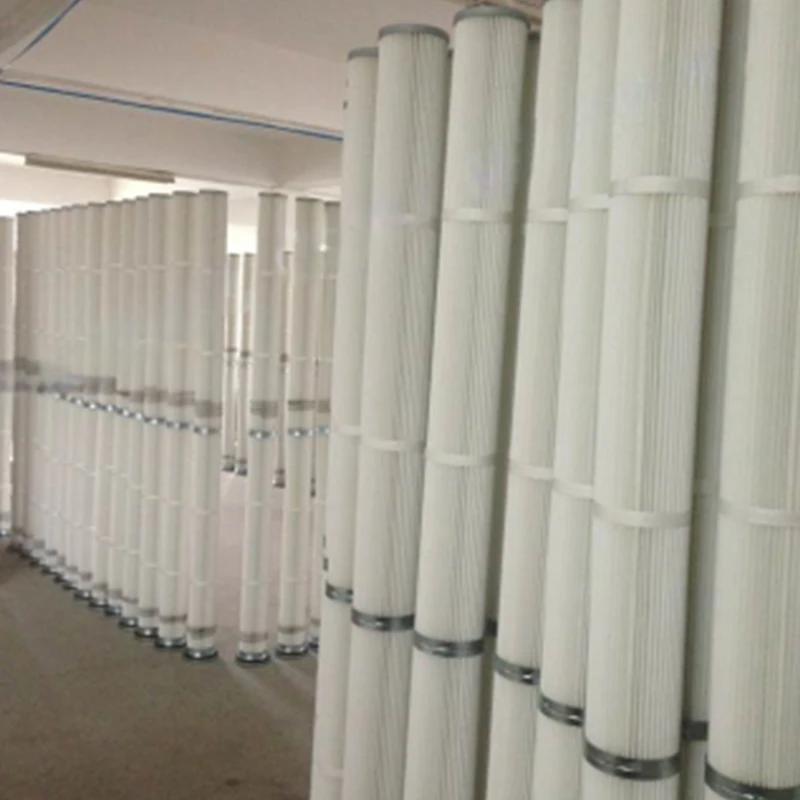 Tel:
+8615930870079
Tel:
+8615930870079
10月 . 13, 2024 15:35 Back to list
hepa filter cartridge
Understanding HEPA Filter Cartridges Importance and Applications
HEPA (High-Efficiency Particulate Air) filter cartridges have become essential components in various air purification systems, offering superior filtration capabilities that help improve indoor air quality. Encased in a cartridge format, HEPA filters are designed to capture a wide range of airborne particles, making them indispensable in both residential and commercial environments. This article explores the significance of HEPA filter cartridges, how they work, their applications, and the benefits they provide.
What is a HEPA Filter Cartridge?
A HEPA filter cartridge features densely packed fibers, typically made from fiberglass, capable of trapping particles as small as 0.3 microns with an efficiency of 99.97%. This includes dust, pollen, mold spores, pet dander, and even some bacteria and viruses. The design of a cartridge allows for easy replacement, ensuring that users can maintain optimal air quality with minimal effort. The effectiveness of HEPA filters lies in their mechanical filtration process, which relies on three primary mechanisms interception, impaction, and diffusion.
How Does a HEPA Filter Cartridge Work?
1. Interception As air passes through the filter, larger particles traveling in the airstream get caught in the fibers. When the airstream changes direction, particles that are close to the fibers may adhere to them. 2. Impaction Larger particles cannot follow the airstream around the fibers due to their inertia, resulting in them colliding with the fibers and being trapped.
3. Diffusion Smaller particles exhibit Brownian motion, causing them to collide with air molecules and move erratically. This motion increases the likelihood of these smaller particles coming into contact with the filter fibers.
These combined mechanisms ensure that HEPA filter cartridges can effectively reduce airborne contaminants, making them ideal for use in various applications.
Applications of HEPA Filter Cartridges
HEPA filter cartridges are utilized across multiple sectors, including
- Home Air Purifiers Many modern air purifiers equipped with HEPA filters significantly reduce allergens and pollutants, providing healthier homes, especially for individuals with allergies or respiratory conditions. - HVAC Systems In commercial buildings and industrial settings, HEPA filters are integrated into HVAC systems to maintain clean air, enhancing comfort and productivity.
hepa filter cartridge

- Medical Facilities Hospitals and laboratories use HEPA filter cartridges to create sterile environments
. They help prevent the spread of contaminants, ensuring patient safety and protecting sensitive equipment.- Automobiles Many vehicles now come equipped with HEPA filter cartridges in their cabin air systems. This helps keep the air within the vehicle free from harmful pollutants, allergens, and odors.
Benefits of Using HEPA Filter Cartridges
The benefits of using HEPA filter cartridges in air purification systems are numerous
1. Improved Air Quality By effectively trapping airborne particles and allergens, HEPA filters significantly enhance indoor air quality.
2. Health Benefits Cleaner air leads to fewer respiratory issues, allergies, and other health problems associated with poor air quality.
3. Energy Efficiency Modern HEPA filters are designed to maintain airflow while providing high filtration efficiency, leading to energy savings.
4. Ease of Replacement The cartridge design allows for straightforward replacement, ensuring that users can easily maintain their filtration systems.
Conclusion
HEPA filter cartridges represent a vital technology in the fight against indoor air pollution. Their ability to capture tiny particles and allergens ensures a healthier living and working environment. As awareness of air quality continues to grow, the demand for effective filtration systems equipped with HEPA technology will likely increase. Investing in a HEPA filter cartridge system can lead to better health outcomes and improved quality of life, making it a wise choice for anyone concerned about the air they breathe.
-
Types and Applications of Air Filtration CartridgesNewsJul.28,2025
-
The Role of Gas Turbine FiltersNewsJul.28,2025
-
Mastering Air Filter Cartridge UseNewsJul.28,2025
-
Advanced Turbine Filters for Modern Gas TurbinesNewsJul.28,2025
-
Cellulose Air Filter Cartridge Advantages in Dust FiltrationNewsJul.28,2025
-
Cellulose Filters for Air Particle ReductionNewsJul.28,2025

 Email:
Email:





